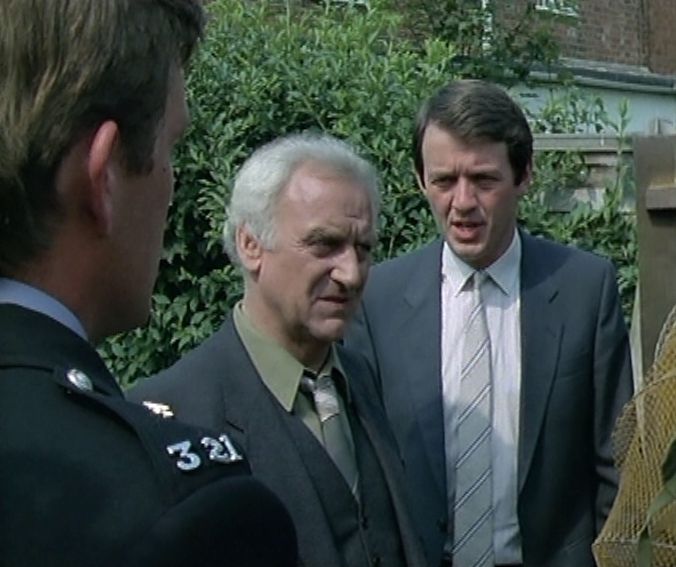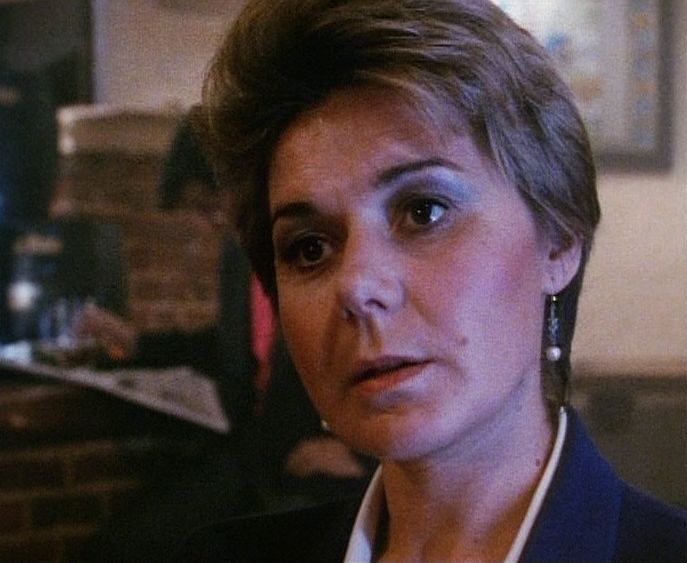
When Inspector Morse debuted in 1987 it was regarded by some as a risky venture. The most common format for drama was the hour long slot, but every episode of Morse ran for two hours (or approximately 105 minutes once the adverts were removed). It was generally believed that holding an audience’s attention for two hours would be a difficult task – especially with a series like Morse, which eschewed action to concentrate on intricate mysteries with, at times, an unashamed elitist air.
But the series’ many strengths – the Thaw/Whately partnership, the Oxford settings, first-rate guest casts, etc – all helped to make Morse an instant success and many other series would later copy the two hour format. Some, like the revived Van Der Valk, didn’t endure but others (A Touch of Frost, Midsomer Murders) clearly benefited from Morse’s lead.
Inspector Morse made his debut in the novel Last Bus to Woodstock, written by Colin Dexter, which was published in 1975. Dexter would pen another twelve Morse novels between 1976 and 1999. When the television series went into production they had seven novels to chose from and elected to launch with Dexter’s fifth, The Dead of Jericho, published in 1981.
It’s easy to understand one of the reasons why Jericho was chosen – it has a personal angle which helps to flesh out Morse’s character straightaway.
Anne Staveley (Gemma Jones) and Morse belong to the same choir and a friendship between them blossoms. It becomes clear very quickly that Morse is hopeful this will lead a deeper relationship, but Anne (whilst she doesn’t explain why) gently tells him that it can’t happen. “It’s complicated” she says. Shortly after this conversation, Anne is found dead at her house in Jericho (a suburb of Oxford). It appears to be suicide, but Morse isn’t convinced.
John Thaw had been a television regular since the mid sixties. His first starring role, Redcap (1964 – 1966) had seen him play a military policeman, Sergeant John Mann, whilst The Sweeney (1975 – 1978) had been his most high profile role prior to Morse. Detective Inspector Jack Regan was a rough, tough Flying Squad officer and it had taken Thaw a while to dissociate himself from the part. So the thought of playing another copper might have palled, although it quickly became clear that Morse was no Regan.
This is amusingly demonstrated in the opening scene as we see Morse take part in a raid on a car chopshop. There’s fisticuffs and the sort of action that wouldn’t have seemed out of place in The Sweeney (although it’s very atypical in Morse). But director Alastair Reid chooses to intercut this with choir practice scenes – and the bizarre juxtaposition (together with the sweet choral soundtrack) is an odd, but effective, choice.
Thaw was only forty-four when The Dead of Jericho was shot, but he looked at least a decade older. Thaw’s Morse is instantly a more vulnerable character than the literary Morse – his relationship with Anne is a good example of this (he pursues her with an almost pathetic eagerness). And when he makes Lewis’ acquaintance later in the story he’s keen at every opportunity to invite him for a beer. Is this because he wants to discuss the case or is Morse simply a very lonely man?

Reid’s directorial style very much favours close ups – it’s an effective way of establishing a sense of claustrophobia and tension – although he does occasionally pull the camera back. The most striking example of this comes after Morse and Anne leave the pub, early in the story. As Morse walks Anne home, Reid takes every opportunity to showcase Oxford’s impressive architecture (in a way that will become a signature mark of the series).
Gemma Jones is appealingly vulnerable as Anne, whilst Spencer Leigh has just the right amount of sneering superiority as Ned Murdoch, a student who’s latched onto Anne as something of a surrogate mother. Patrick Troughton, in one of his last roles, is delightfully seedy as Anne’s next door neighbour – an odd job man who gets his kicks as a peeping-tom whilst James Laurenson is perfect casting as Tony Richards.
Richards was Anne’s former employer and all the evidence suggests he and Anne had enjoyed a lengthy affair – something confirmed by Richards’ disgruntled wife Adele (Annie Lambert). Laurenson is one of those actors whose face is instantly recognisable, even if his name is less so, and it’s nice to know that he’s still going strong today.
If the television Morse differed somewhat from his literary counterpart then the same certainly goes for Lewis. Dexter’s Lewis was a contemporary of Morse and tended to always be several steps behind his boss. By casting a younger actor, Kevin Whately, the whole dynamic changes (for the better it must be said).
Indeed, The Dead of Jericho doesn’t really start to work until Morse and Lewis are teamed up. To begin with, Lewis is partnered with the acerbic Chief Inspector Bell (Norman Jones). Bell, in charge of the case, distrusts Morse because he’s clever(!), but Lewis has a more open mind. It does appear that Morse and Lewis have never met face to face before – which makes more sense in the book as it’s explained that Bell works at another station.
That Morse sees himself as a free-wheeling maverick is made obvious when he fails to tell Bell that he knew Anne, or that he visited her house on the afternoon she died. His disregard for the law can also be seen when he decides to clandestinely visit her house in the dead of night to search for clues.
Lewis, lying in wait, nabs a villainous-looking character in a back leather jacket climbing over the wall, only to be shocked when it turns out to be Morse! It’s a nice comic moment, although it does support the view that Morse shouldn’t be allowed anywhere near the case. But when Bell is promoted, Chief Superintendent Strange (the always wonderful James Grout) does indeed give Morse the case (and gives him Lewis as well).
Anthony Minghella’s adaptation changes most of the names as well as removing a few characters (or changing them somewhat). Whether this helps to make the screenplay better or worse than the novel is open to debate, but it’s undeniable that around the seventy minute mark it’s impossible not to find your attention drifting. This would always be a problem with the two hour format (more so once the series had exhausted Dexter’s novels) but it’s worth sticking with it until the end.
So whilst it’s not the most involving of whodunnits, Thaw and Whately hit the ground running and this ensured that Inspector Morse had a solid future.









